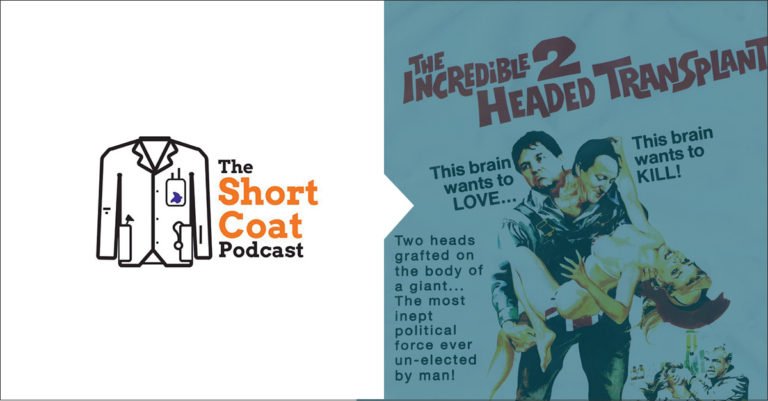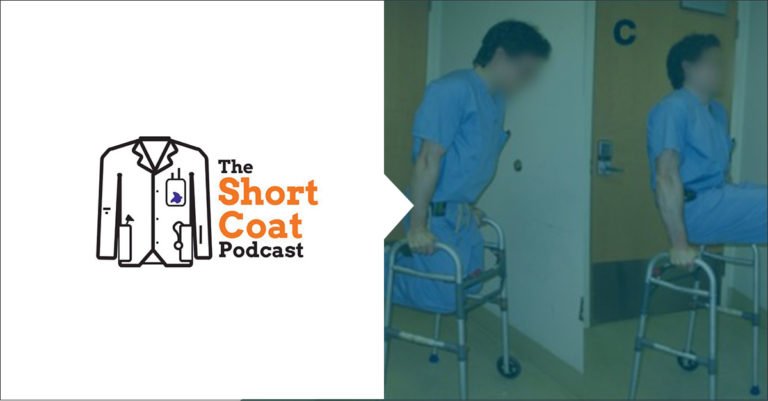
Staying Afloat: 12 Tips for Juggling Research with Your Classes
Medical school can often feel like an impossible juggling act. Students are constantly struggling to ... Read more
Written by: Trevor C. Hunt
Published on: December 31, 2018

Medical school can often feel like an impossible juggling act. Students are constantly struggling to ... Read more
Written by: Trevor C. Hunt
Published on: December 31, 2018

Aline Sandouk discusses with her co-hosts the recent breakthrough in her research–which is pretty much ... Read more
Written by: The Short Coat Podcast
Published on: December 21, 2018

By Adelle It’s finally begun! This is the moment we’ve all been waiting for: to ... Read more
Written by: Adelle
Published on: December 18, 2018

If you’re down to the wire holiday shopping for the doctor-in-training in your life—or looking ... Read more
Written by: Student Doctor Network
Published on: December 17, 2018

Are you buying what med student Instagrammers are selling? You’ve probably noticed them. Cute med ... Read more
Written by: The Short Coat Podcast
Published on: December 14, 2018

After a long semester of studying and exams, it can be easy to forget what ... Read more
Written by: AAMC Staff
Published on: December 13, 2018

Welcome to “Research for the Rest of Us”, a column about navigating the complex intricacies ... Read more
Written by: Trevor C. Hunt
Published on: December 4, 2018

The first year of medical school is an exhilarating milestone in the life of an ... Read more
Written by: Nicole Hawkins
Published on: November 28, 2018

All about Medical Scientist Training Programs [Happy Thanksgiving, US listeners! We’re taking a break for turkey ... Read more
Written by: The Short Coat Podcast
Published on: November 23, 2018

I’ve officially begun my interview trial! I’ll catalog more about my experiences as I go, ... Read more
Written by: Adelle
Published on: November 19, 2018

May the Slap Chop save us all. As medical science progresses, it not only answers ... Read more
Written by: The Short Coat Podcast
Published on: November 9, 2018

A look at the people valued more as functioning machines than as people This past ... Read more
Written by: The Short Coat Podcast
Published on: November 2, 2018

Several years ago, banks and mortgage lenders began targeting doctors who recently graduated from medical ... Read more
Written by: Justin Havre
Published on: October 31, 2018

Emergency medicine draws many students towards it because of the lifestyle-friendly aspect, shift work, and ... Read more
Written by: Emily Millet
Published on: October 23, 2018

The year is 1921. A medical student toils away at a dimly lit lab bench ... Read more
Written by: Trevor C. Hunt
Published on: September 24, 2018

Most people asking what discipline I was pursuing during my fourth year of medical school ... Read more
Written by: Guero
Published on: August 29, 2018

Updated July 29, 2021. The article was updated to correct minor grammatical and formatting errors. ... Read more
Written by: Meghan Taylor
Published on: July 11, 2018

Your Med School Application is Too Important to Rush Listener Hanna wrote in to ask ... Read more
Written by: The Short Coat Podcast
Published on: July 6, 2018

How can you brag about yourself without bragging about yourself? We are taught from a ... Read more
Written by: The Short Coat Podcast
Published on: June 29, 2018